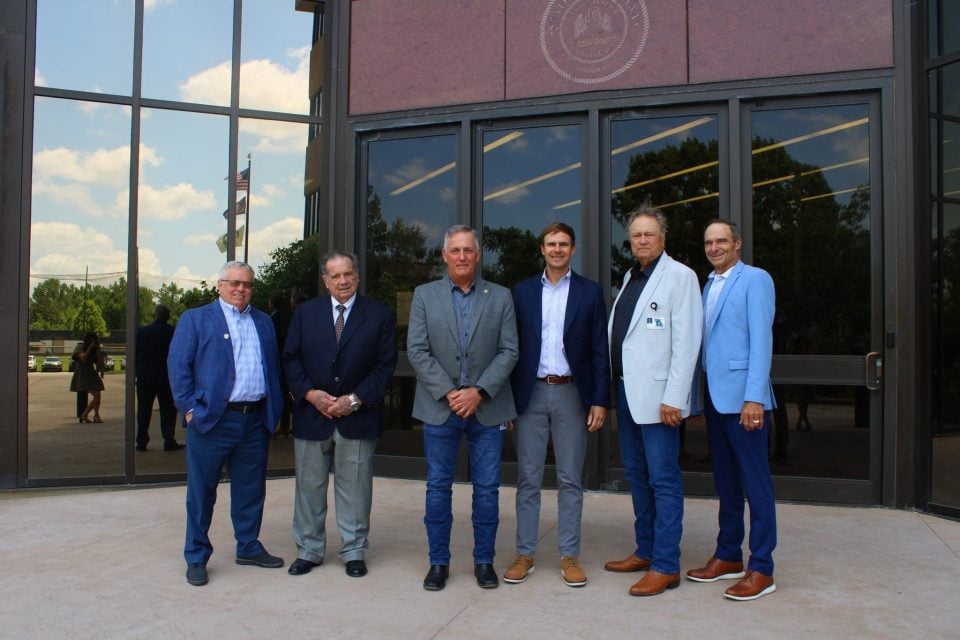
Local businesses see opportunity in North Dakota
September 25, 2012Officials go the extra mile to save La. coast
September 25, 2012Everyone knew change was coming to the oil and gas industry in lieu of the BP oil spill.
But now more than two years removed, what exactly is different?
New policy dictates that permitting, production and rule enforcement are among the areas hit the hardest by post-spill rules that are law within the industry – aggressive changes that lawmakers believe have made the Gulf of Mexico a safer work environment.
“These new rules and the aggressive reform agenda we have undertaken are raising the bar for the oil and gas industry’s safety and environmental practices on the Outer Continental Shelf,” said U.S. Secretary of the Interior Ken Salazar two years ago when he announced the new regulations laid unto the oil industry. “These restrictions will minimize the risks and reduce the risk of human error.”
According to Louisiana Oil & Gas Association President Don Briggs, the biggest differences in the new rules involve containment.
Briggs said that rigs must now have a full containment system in place – just in case emergency strikes.
These systems are comprised of devices that slide over the tops of free-flowing wells to contain oil in the case of a spill.
“When you have a blowout like the Macondo was, this device can go right over the top of it and shut the well in,” Briggs said. “It is able to capture all of the oil. And of course, it’s been approved by BSEE (the Bureau of Safety and Environmental Enforcement) and all of the right people, so that containment system is the biggest thing.”
Away from the containment devices, companies now have a complex system of checks and balances that they must partake in before going forward in the drilling process.
These restrictions are designed to protect workers from the timesaving and cost cutting measures that some say were the guilty culprits behind the Macondo explosion.
Many of these checks are laid out in the Workplace Safety Rule, which requires that operators have a Safety and Environmental Management System, which is a program geared toward reducing human and organizational errors.
“We are substantially raising the standards for all offshore operators,” said Michael Bromwich, director of the Bureau of Ocean Energy Management, Regulation and Enforcement in a news release. “We will continue to move forward with other changes and reforms in what will remain a dynamic regulatory environment.
“We owe the public nothing less.”
“This is more or less a check list of all of the different procedures that take place within the different wells,” Briggs added. “It just is designed to make sure that people are doing the things necessary to maximize safety within the rig.”
The changes are in place, but exactly what effect are they having on the industry?
Governmental heads like Salazar and Bromwich will boast that the Gulf of Mexico is now safer than it was the day of the BP spill.
But local officials aren’t quite as convinced.
According to U.S. Rep. Jeff Landry, R-New Iberia, the new regulations have a very simple impact.
The local leader said they aren’t having an effect at all on safety.
Landry said be believes the regulations were merely reactionary and were mostly unnecessary.
Landry points to the Gulf’s track record for safety before the spill as being near flawless.
He added that the new rules do not make oil and gas exploration safer.
“For the most part, I don’t believe they have,” Landry said. “I think for the most part, a lot of the hurdles that BOEM (the Bureau of Ocean Energy Management) and BSEE have put in place probably would have been put in place by the industry without the government’s intervention.
“ I think that all of the investigations show that if we would have continued to enforce the regulations that were already on the books, that the likelihood of the accident would have been minimized.”
Briggs said he wouldn’t go quite as far as Landry. He added that some of the laws do make the Gulf safer.
“One thing we in the industry have learned is that when we have an accident, we learn from it and we grow and get better,” Briggs said. “Without question, some of the new procedures and safety equipment devised does make some things safer, without question. I don’t think anyone can accurately claim on the contrary.”
But like the local politician, he believes some of the laws were overkill and are merely words on a piece of paper.
“There’s definitely some overreach of regulation, as well,” Briggs said. “I think we got a little bit of both out of this. I think we got some good things and some good safety requirements, but I think we also got some overreaches within the regulatory system.”
Despite safety regulations that make permitting more difficult to obtain, oil rigs still stand in the Gulf of Mexico. Local leaders debate whether the new regulations make Gulf drilling safer.




